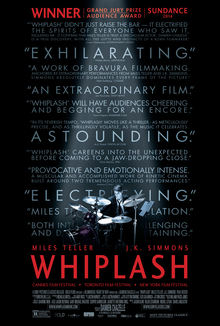
|
| (http://www.mongrelmedia.com) |
- Also Known As:
- Boychoir
- Version:
- needed to precede following dl
- Languages:

- Length:
- 99 minutes (Uncut)
- Review Format:
- DVD
- Year:
- 2014
- Countries:


- Predominant Genre:
- Drama
- Director:

- Outstanding Performances:
- None
- Premiss:
- Troubled orphan ends up at a choir school after the death of his single mother.
- Themes:
- Alienation | Art | Atheism | Black people | Coming-of-age | Courage | Curative | Destiny | Emotional repression | Family | Identity | Individualism | Loyalty | Materialism | Narcissism | Nostalgia | Personal | Personal change | Political | Political Correctness | Propaganda | Rationality | Republicanism | Sadomasochism | Schizophrenia | Science | Solipsism | Stereotyping | Totalitarianism | Western world | White culture | White people
- Similar to:



The Death of Western Music
It is taken as read that the Western classical music presented here is of some value to those listening to it and to the wider White culture which produced it, but this assumption - like so many assumptions in White culture - is not dramatically-examined in case it turns out to be untrue.
Rather than suggest that music has some inherent meaning or value in itself - or some cultural meaning around which a worthwhile society can coalesce - we are presented with the pretense that music somehow unites people - even those for whom it has no meaning or cultural or social value - without either explaining such a process and without addressing such issues as the stasis of high culture versus the vibrant dynamism of low, especially Black, culture; mockingly referred-to here.
The music here is simply on show - to be seen but not really heard - since even its Christian roots are elided in favor of sentimentality. Whites are so loyal to their own culture that they will render it purely materialistic in order to preserve what has long past its sell-by date; destroying any value it once possessed for good, in the process. The only existential choice presented in the drama is the choice not to squander one’s talent - regardless of the totalitarianism such a Hobson’s Choice affectively represents; rendering the Personal as Political as only the fallacy of Political Correctness can. No wonder Whites do not believe in free will.
The lack of human warmth and empathy inherent in White culture is emphasized, but never dramatically linked to the contemporary cultural meaninglessness of centuries-old music that has nothing to say about life in the West today. We are expected to believe that music has a therapeutic purpose in helping overcome human travails - as if paranoid-schizophrenics could be cured by music therapy. This is mystical, pseudo-religious claptrap that is the reverse of the coin of absurd claims that violent video games can make one violent. There is no empathy for any character, here, only an emotionally-repressive desire to discipline talent so it fits the patterns of the past - no matter their relevance today - as a vain substitute for family structures (eg, extended) that Whites are busy abandoning. This is why the boys here develop no lasting friendships and the grieving over the loss of the central character’s mother is all-too-brief.
There is also no dramatic exploration of the nature of talent - as if it comes from nowhere and can be appreciated by only a select few who, yet, cannot explain its existence. In this way, the characterization is poor because the characters are nothing more than stereotypical mouthpieces for the screenwriter&rsquos superficial inability to say anything of importance about music, culture, ontogeny or self-expression. Here, character is malleable and does no more than meet the needs of the screenplay, as opposed to those of human nature; leaving the audience with undifferentiated characters as part of an amorphous, multi-headed Hydra which, one moment, is hostile, the next, beneficent. This leaves the performers with nothing more to explore than the silliness that results from claiming that those with exceptional talent should be encouraged; while those apparently lacking should be left to rot. Even the always-great Kathy BATES and ever-delightful Debra WINGER have nothing more to do than be comic foil and look beatific, respectively, because the script offers them little else.
The thematic formalism and emotional shallowness of the musical appreciation shown here is never explained, nor are the motivations for doing nothing more than reproducing the modes of the past, rather than moving the form on with anything like innovation. It is laziness and alienation that leads to White culture becoming fossilized; the traditions on show here coming to exist for their own sake; serving no higher purpose other than themselves - an inward staring at a crepuscular Caucasian abyss. Pretending to be about nurturing talent when it is really about White narcissism and living in a past that is no longer relevant, this movie only hints at the validity of such a claim, while wallowing in its own sickly-sweet solipsism.
One can only assume that White culture has nothing left to offer other than nostalgia and a trumped-up sense of its own importance, as here. The music is very nice, but there is nothing to uplift the soul, stir the emotions or engage the mind, since a balance of these things is not present. After all, what is the point of producing music if it is just a technical exercise in self-discipline?
No comments:
Post a Comment